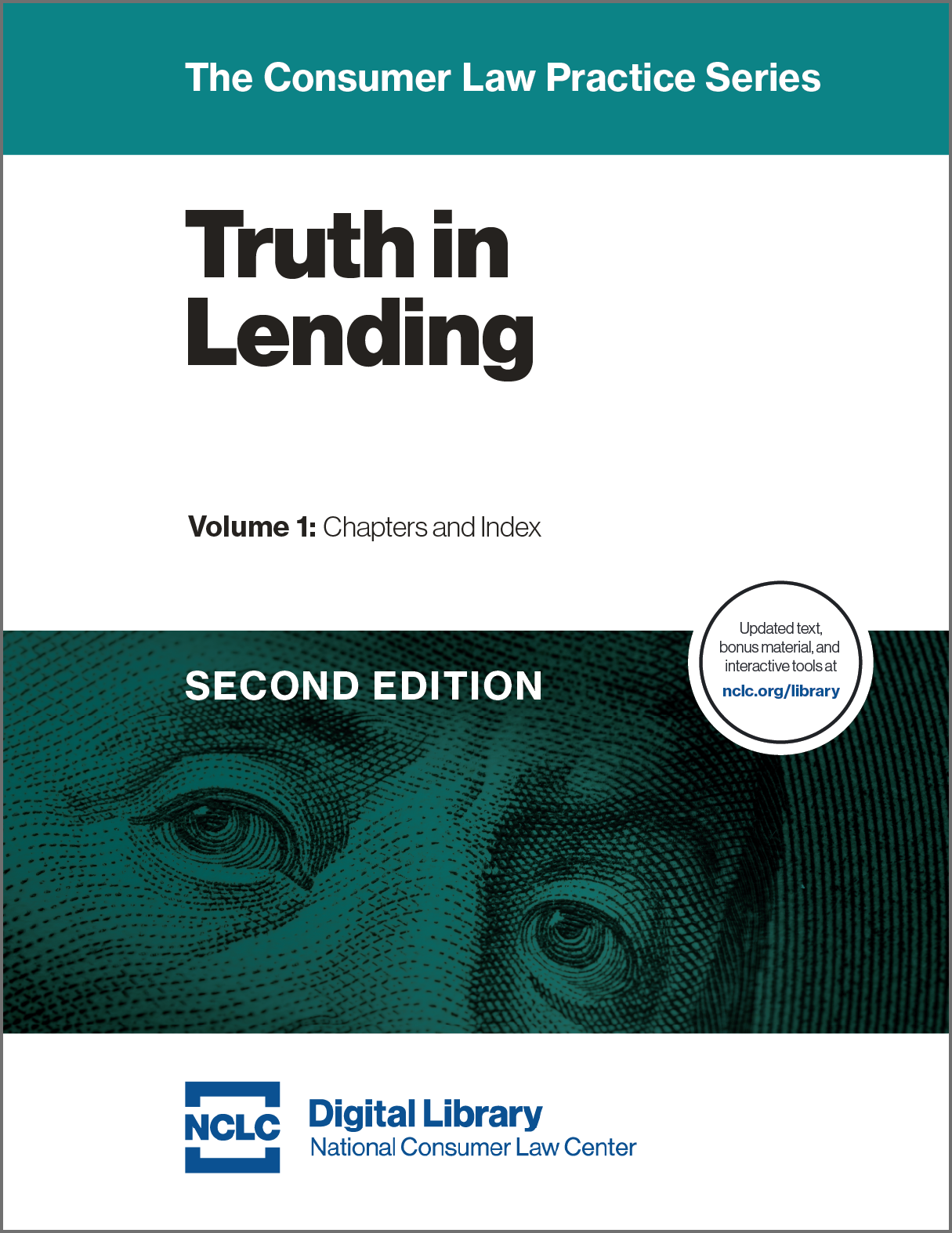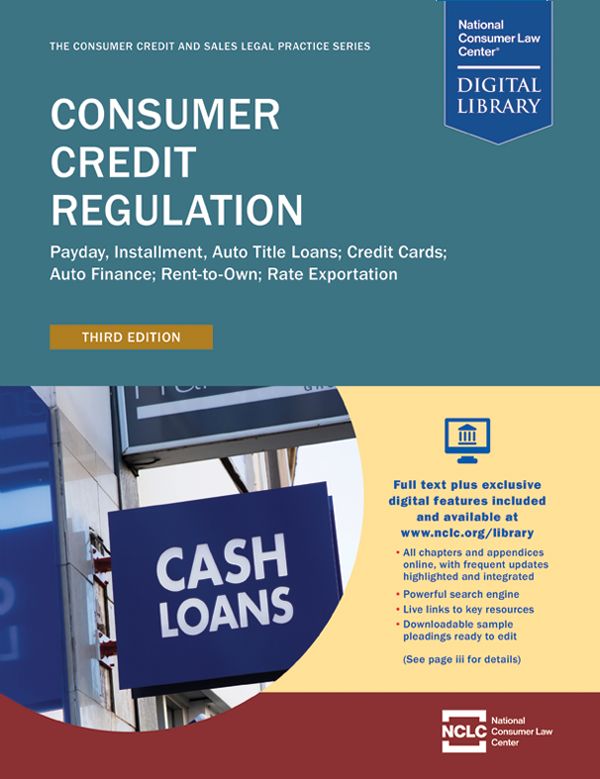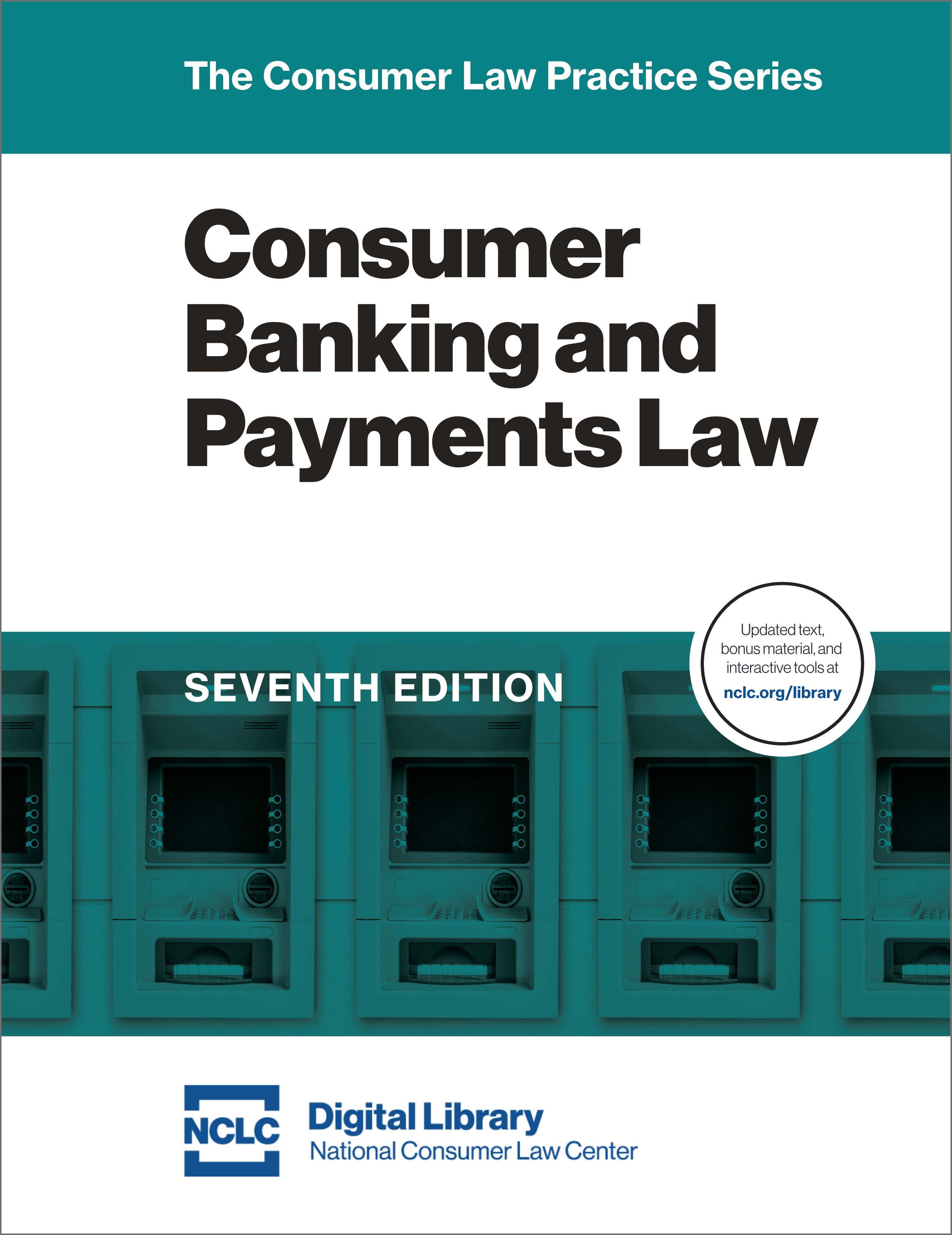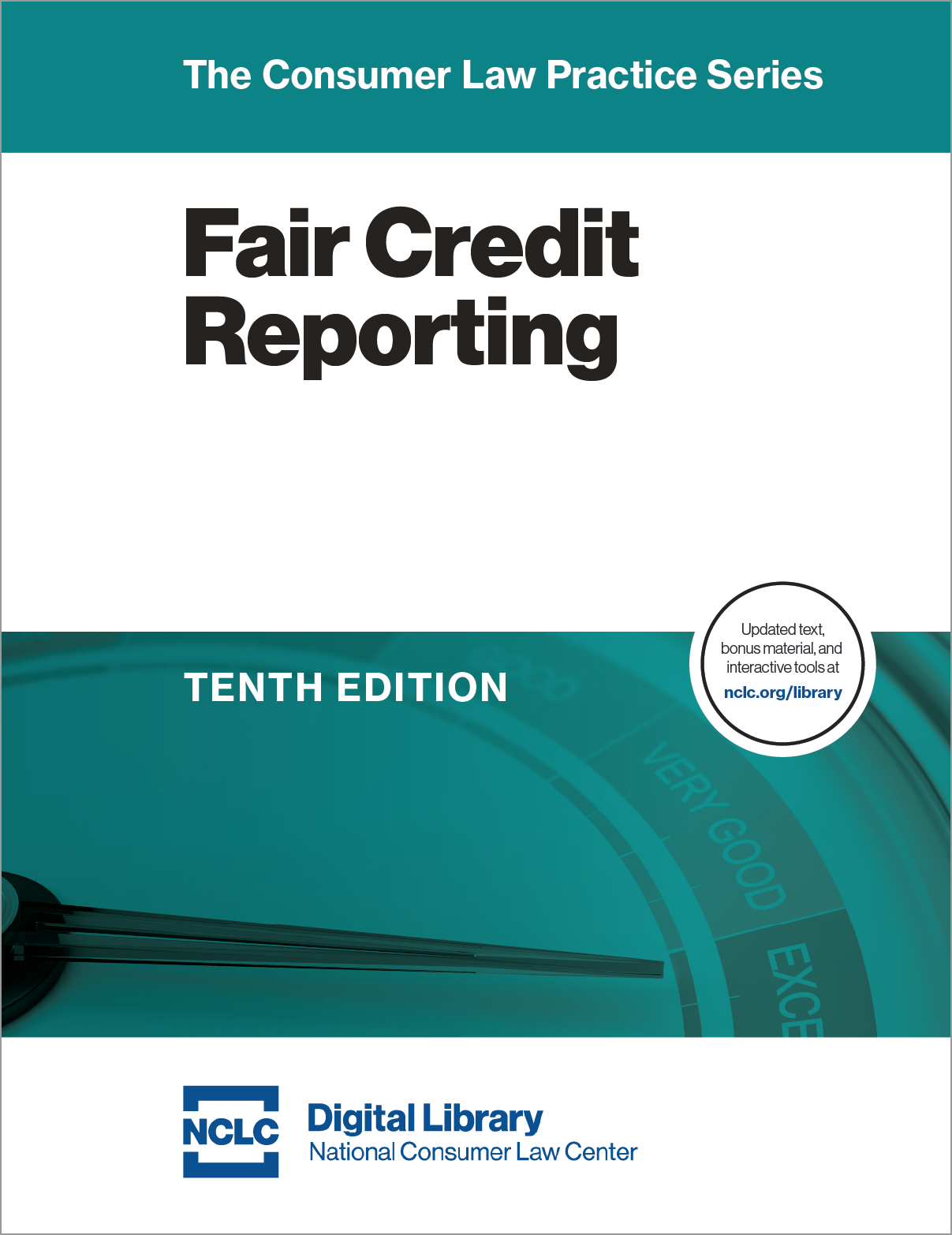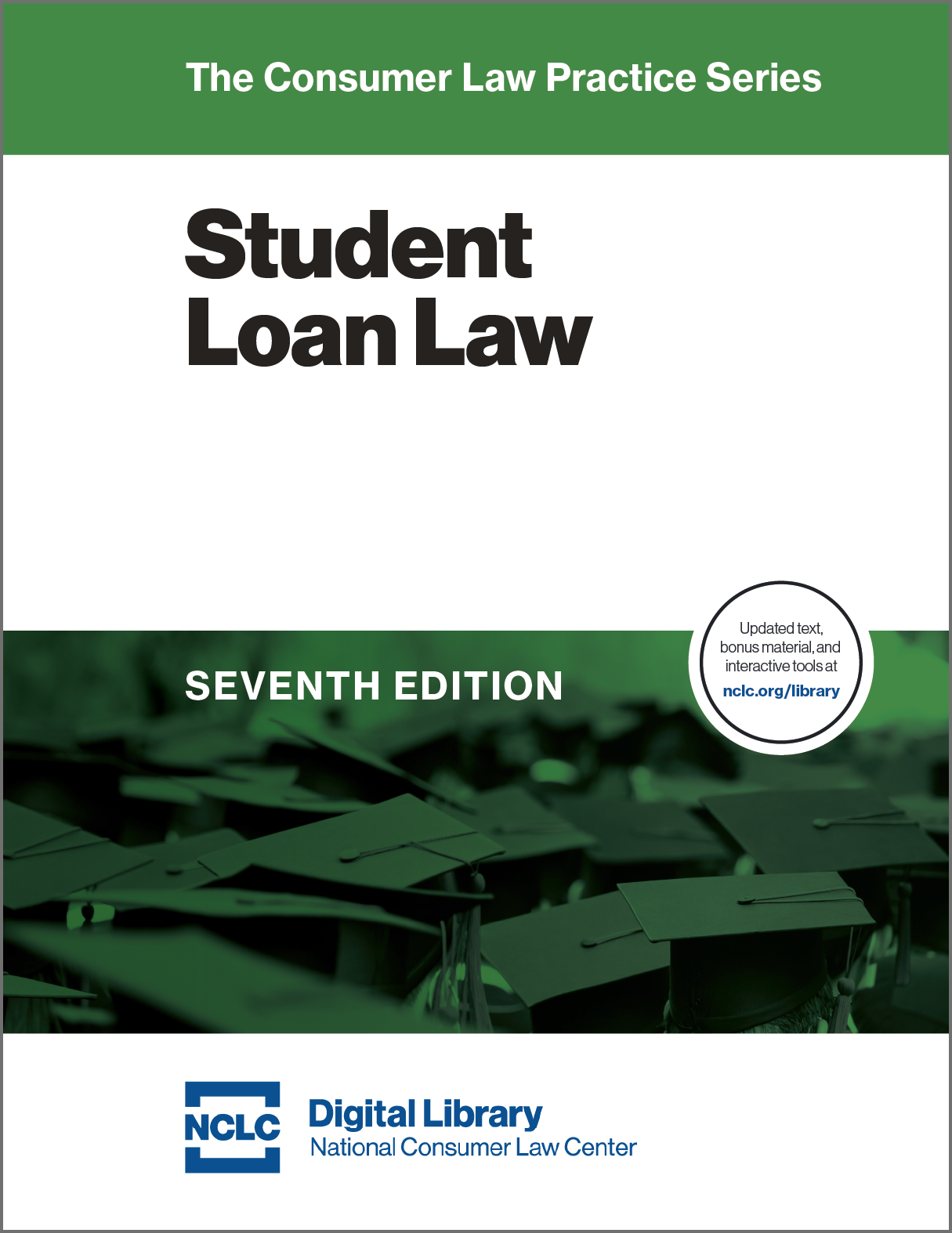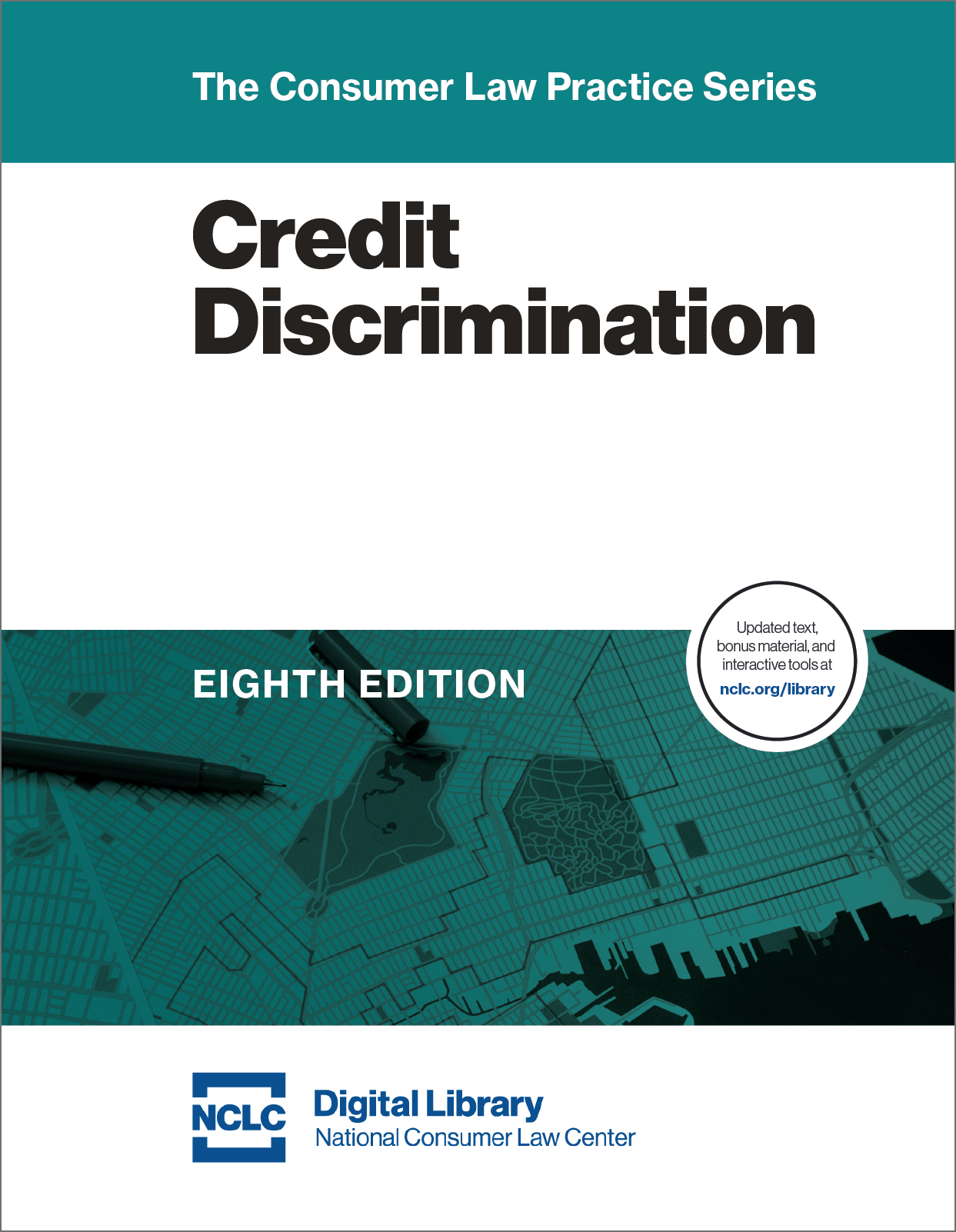Big Changes for Credit Reports, Improving Accuracy for Millions of Consumers
As described in this article, two dramatic changes to consumer credit reporting become effective this summer, scaling back reporting of tax liens, civil judgments, and medical debt. The result will be improved accuracy and higher credit scores for millions of consumers.
CFPB Report Details Problems, New Requirements Consumer Reporting Companies Must Implement
Essentials About Credit Reporting: Consumer Debt Advice from NCLC
FDCPA’s Application to IRS’ New Private Debt Collectors
The Latest on Metro 2: A Key Determinant As to What Goes Into Consumer Reports
New July Student Loan Rule Amendments: What Changes and What Does Not
Six Key Pointers in Advising Clients at Tax Time
Implications of New CFPB Bulletin on Consumer Reporting of Renters
On July 1, 2021, the Consumer Financial Protection Bureau (CFPB) issued an Enforcement Compliance Bulletin (hereafter Rental Reporting Bulletin) on consumer reporting issues involving tenant screening reports as well as the reporting of rental information on credit reports.
Image
Twelve Dramatic Changes Offering Relief for Student Loan Borrowers
This article describes new major relief for student loan borrowers: $10,000 or $20,000 for millions of borrowers, and added relief for those in public service, in default, with disabilities, attending specific schools, with private loans, or with IDR plans. New loan servicers and no more private debt collectors. The article links to more detail and sets out steps borrowers should take now to make the most of the offered relief.
Advising Clients When an Abusive Partner Coerces Debt
This article provides practical tips for advising clients with debt incurred by an abusive partner through coercion and fraud—developing a safety plan, documenting the coerced debt, protecting bank accounts, dealing with unauthorized credit card use, preventing an abuser from opening new accounts in the victimized partner’s name, addressing coerced debt on a credit report, and dealing with home mortgages.
Two New CFPB Advisory Opinions Facilitate Private FCRA Litigation
Effective January 23, 2024, two new CFPB advisory opinions clarify a number of critical Fair Credit Reporting Act (FCRA) issues and should facilitate private FCRA litigation. The first advisory opinion addresses accuracy issues in background check reports used by most employers and landlords. The second advisory opinion addresses problems consumers face when seeking complete disclosure of their credit reports.
Image

Student Loan Borrower Rights After the Supreme Court Ruling
Forty-five million borrowers are scrambling to figure out options for managing their federal student loans before repayments resume this fall. This article sets out new student loan rights: fresh starts for those in default; the SAVE repayment plan; lower interest charges; avoidance of school arbitration provisions; and easier paths to public service loan forgiveness, bankruptcy discharges, and five types of statutory loan cancellations.
CFPB Clarifies Limits on Pay-to-Pay, Other Debt Collector Charges
A new CFPB advisory opinion not only clarifies when “pay-to-pay” fees are prohibited, but also whether a wide array of other debt collector charges violate the FDCPA. This article provides numerous examples of potentially illegal debt collector charges under the just-announced standards. A Truth in Lending Act provision provides even stronger remedies for fees added to automated payments for credit card debt.
Congressional, First Circuit, CFPB, and VA Actions Affecting Fair Credit Reporting
A Congressional amendment, a First Circuit decision, two CFPB administrative issuances, a CFPB report, and a Veterans Administration rule all will have significant consequences for consumer reporting under the Fair Credit Reporting Act (FCRA). This article provides the highlights of these recent developments and their implications for consumers, advocates, and FCRA practitioners.
Data Gatherers Evading the FCRA May Find Themselves Still in Hot Water
2019 decisions from three circuit courts exempt data gatherers from the Fair Credit Reporting Act (FCRA). This article explains that these firms should be careful what they wish for, as FCRA preemption no longer applies and they become subject to potentially powerful state laws.
CFPB Issues Three FCRA Interpretations with Widespread Implications
This article examines practice implications of three recent CFPB interpretations of the Fair Credit Reporting Act, including: tenant and background screening companies’ use of name-only matching violates the FCRA; users are strictly liable for permissible use violations; and state law can limit when medical debt, evictions, rental arrears, and criminal records can first be reported.
Supreme Court: Federal Agencies Can be Sued Under Fair Credit Reporting Act
On February 8, the Supreme Court held that the FCRA waives federal sovereign immunity from FCRA damage claims when federal agencies furnish inaccurate information to consumer reporting agencies. This article examines the broader implications—other FCRA claims against federal agencies, FCRA claims against state and local agencies, and which other consumer statutes waive sovereign immunity.
Image

Helping Consumers Harmed by Payment Fraud
Fraud schemes usually include forms of consumer payment that limit consumer ability to stop or reverse payment. This article explains payment methods frequently used in fraud schemes and then sets out practical steps and legal rights that may allow consumers to get their money back, based on each of the common payment techniques fraudsters use to receive the consumer’s payment. Links are provided for further help.
